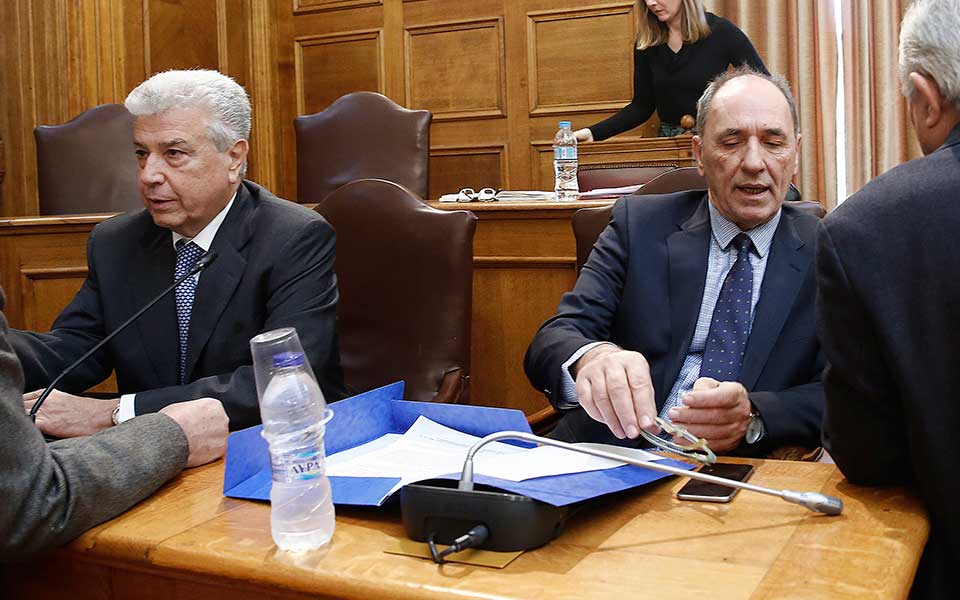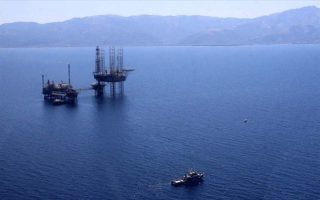Cause and effect: PPC’s financial woes

“Every person has a role; the role of Mr Panagiotakis is to present his thoughts and proposals on the best handling of issues pertaining to Public Power Corporation’s management interests. It is not the chief executive’s place to negotiate with the creditors, nor to make policy. Policy is determined by the government. I would therefore suggest that he comes to terms with this fact.”
It was with this statement, made at a press conference on May 25, 2017, during a visit to the Energy Ministry, that Prime Minister Alexis Tsipras forced PPC chief Manolis Panagiotakis to wake up to the harsh realities facing the public utility as a result of policy that his political superiors had negotiated with Greece’s creditors.
Tsipras’ intervention was prompted by mounting tension – which often took the shape of a public confrontation – between Panagiotakis and his political superiors, former energy minister Panos Skourletis and his successor Giorgos Stathakis, regarding government choices on the issue of the electricity market’s liberalization and the European institutional framework.
Having spent several years of his career at PPC and with in-depth knowledge of the corporation and the domestic power market, Panagiotakis was in a position to judge the government’s decisions and to deem them destructive. After failing to convince officials to reverse those choices, he made several attempts to bypass government policy by drafting alternative plans of his own.
One such plan provided for the construction of new lignite-powered electricity plants by consortiums between PPC and private investors, instead of the sale of coal-fired units the government and the creditors have agreed on.
Another plan concerned the creation of two electricity supply subsidiaries to which PPC would transfer customers of all categories, before conceding both to private investors. This was his answer to the power auctions implemented at low rates to competitors and the outflow of the utility’s reliable clients to alternative suppliers, who have the luxury of selecting good clients from PPC’s enormous pool of customers and dismissing those who are less reliable.
After that intervention by Tsipras, just over two years ago, Panagiotakis’ ability to deviate from government policy was seriously curtailed. During a more comprehensive meeting at the prime minister’s office shortly after – a meeting whose purpose was to discuss PPC and its serious cash flow problems – the utility’s CEO was faced with a clear choice: Toe the line or risk being replaced by someone who will. The PPC head chose to “come to terms with facts,” as ordered, obeying his superiors and implementing policies that have now brought the country’s biggest corporation to the brink of financial ruin.
PPC itself has assessed the cost of the government measures (the power auctions and the renewable energy sources levy) at around a billion euros from October 2016 when they started being implemented through the end of 2018. On top of that came the hike in the cost of carbon dioxide emissions, which skyrocketed from an average rate of 5.71 euros per ton in 2017 to 15.89 euros/ton in 2018 and this year it hovers above 25 euros/ton.
Operating costs have also spiked since mid-2017, as seen in the results of the first quarter of 2018. PPC’s management started pressing for the increased cost to be passed onto consumers so as to bolster profits and ensure the company’s ability to draw fresh capital from the markets, as liquidity was running dry and loan maturities were looming. Customers’ accumulated debts jumped from 1.7 billion euros in 2014 to 2.7 billion last year, leaving PPC coffers empty, while the increased costs of CO2 emissions simply aggravated a bad situation even further.
Constant demands by PPC for the introduction of a flexible CO2 levy (which would be pegged on the cost of emissions internationally) ran into opposition from Stathakis. Weighing the political cost of such a decision, he preferred to undermine PPC’s problem and to boast about protecting lower power rates, while accusing the opposition and the media of scaremongering for sounding the alarm about the utiltiy’s plight.
In May 2018, Kathimerini published a study on PPC by authorized consultant McKinsey, which concluded that Greece’s power giant is an unsustainable corporation that will need to improve its operating profits by 500 million euros in the next five years so as to avoid collapse. At the time, Stathakis and the PPC administration chose to dismiss the report and accused the media of taking part in profiteering games at the utility’s expense, instead of examining the problems and the proposals outlined by the consultant.
Financial results for 2018 confirmed PPC’s devolution from a pillar of the Greek economy into a near-failed business: It posted losses of 903.7 million euros and a drop in turnover by 201.8 million euros, or 4.1 percent, from 2017. At the end of 2018 short-term obligations were hundreds of millions of euros above the anticipated cash flow, making certified accountant Ernst & Young stress the risk of bankruptcy in its report attached to the financial results.
Yet somehow, even that situation did not alarm the authorities. Instead of taking action to address the downfall, they chose to keep PPC alive with cash injections, effectively kicking the can down the road – to the next government.
However, the utility’s reserves are running out, as PPC’s chief financial officer Alexandra Konida recently warned the management and the board. Losses in the first quarter of this year have expanded further, and the PPC administration is seeking ways to stem the tide until they are set in stone with the publication of Q1 figures this coming Friday, while the earnings before interest, tax, depreciation and amortization (EBITDA) were negative.
Greek banks are keeping a wary eye on developments in the utility, as their exposure comes to 1.7 billion euros, just under half of PPC’s total debts of 3.7 billion.





